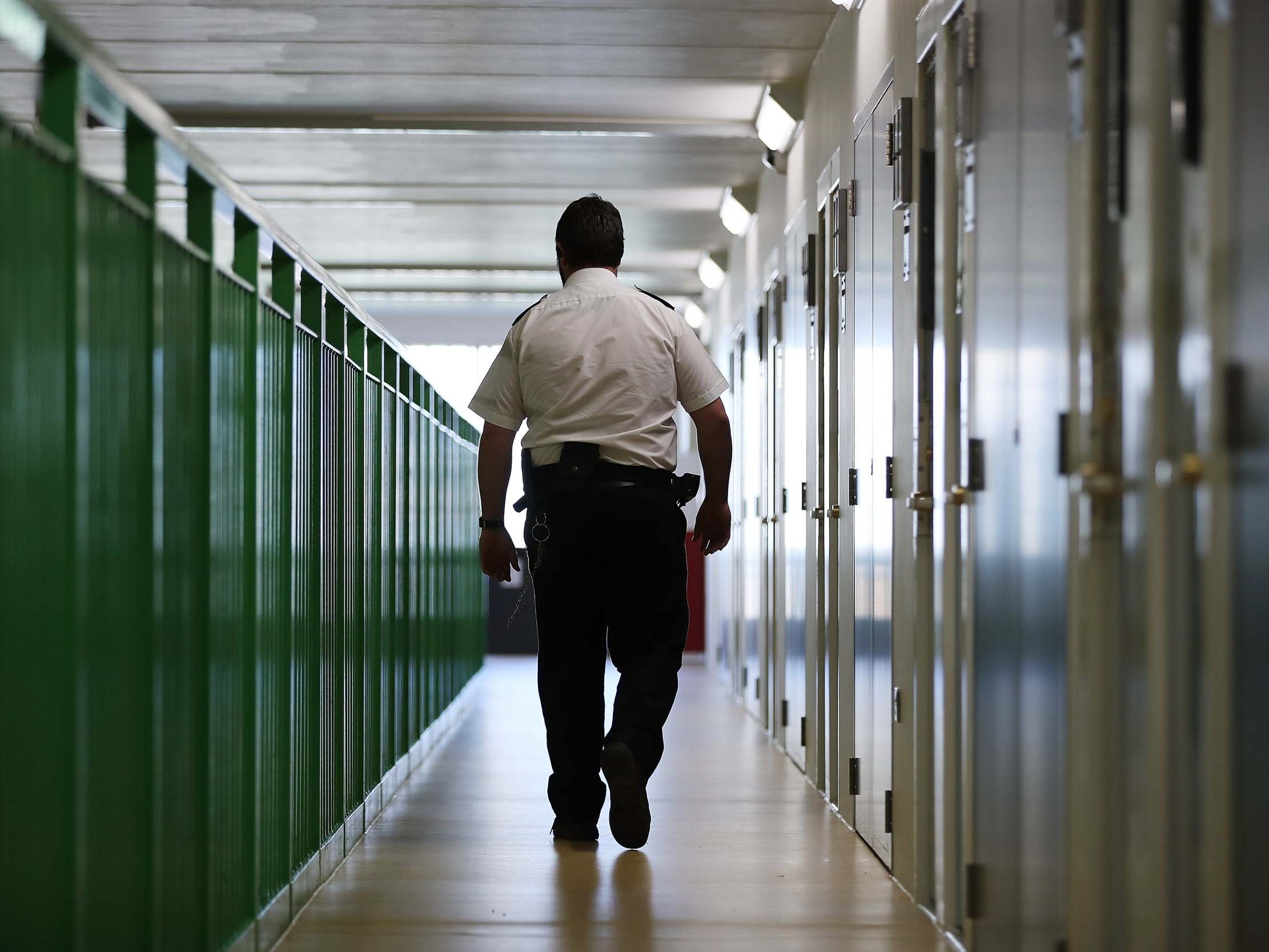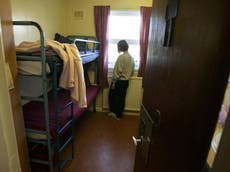‘Staggering’ government failures could see prisons running out of space in three years, warn MPs
Public Accounts Committee says high-risk inmates are being held in low-security jails as a result of overcrowding

Your support helps us to tell the story
From reproductive rights to climate change to Big Tech, The Independent is on the ground when the story is developing. Whether it's investigating the financials of Elon Musk's pro-Trump PAC or producing our latest documentary, 'The A Word', which shines a light on the American women fighting for reproductive rights, we know how important it is to parse out the facts from the messaging.
At such a critical moment in US history, we need reporters on the ground. Your donation allows us to keep sending journalists to speak to both sides of the story.
The Independent is trusted by Americans across the entire political spectrum. And unlike many other quality news outlets, we choose not to lock Americans out of our reporting and analysis with paywalls. We believe quality journalism should be available to everyone, paid for by those who can afford it.
Your support makes all the difference.Prisons could run out of space for new inmates within the next three years, according to a parliamentary report accusing the government of “staggering” failures.
The Public Accounts Committee said almost two thirds of adult jails in England and Wales are already overcrowded and some high-security inmates were being left in low-security facilities as a result.
“Demand for prison places could outstrip supply by 2022-23,” said a report released on Friday.
“We are not convinced that the Ministry of Justice’s plans to create more capacity will allow it to match the expected increase in the prison population whilst keeping prisoners safe.”
MPs found that demand for prison places had increased with the creation of numerous laws increasing sentences, while the construction of new jails had been delayed.
The report said coronavirus had slowed the number of new inmates because of a pause in jury trials and fall in court cases being heard, but that “robust plans” were needed for future waves of the virus.
It warned that a backlog of 524,000 criminal cases would eventually be processed and officials “expect the demand for prison places to increase as courts and the CPS return to full capacity”.
MPs found that only 206 of 10,000 new for old places the government committed to create by 2020 have been delivered, leaving prisoners in unsafe, crowded conditions that worsen their chances of rehabilitation.
The report said 500 places were being taken out of action every year because of poor maintenance, and that HM Prison and Probation Service (HMPPS) has a backlog of maintenance work expected to cost more than £900m.
It highlighted budget cuts over the past decade and said outsourcing to private firms in a bid to save money echoed the “disastrous” 2014 reforms to the probation service, which was brought back under public control this year.
The report said the Ministry of Justice had exposed taxpayers to higher-than-expected costs as a result of "inadequate planning, unrealistic assumptions and poor performance whilst managing facilities within prisons”.
“The scale of failure, in our prisons and in the disastrous probation reforms, is really quite staggering,” said Meg Hillier, chair of the Public Accounts Committee.
"The Ministry of Justice is still reeling from the long-term consequences of its unrealistic 2015 spending review settlement, but our whole society is bearing the financial and human cost of sustained under-investment.
“Even now, we are not convinced MoJ and HMPPS have the ingredients for an effective, sustainable long-term strategy.
"We now expect a set of reports to be made to us over the coming months, assessing the realistic costs of their mistakes to date and how to fix them, and a credible new plan for a working prison estate and system that can reduce re-offending — not just lock people in to this cycle of violence and harm.“
MPs also criticised the Ministry of Justice for an inability to answer "basic questions" about women's jails, with female inmates accounting for 5 per cent of the prison population.
Frances Crook, chief executive of the Howard League for Penal Reform, said: “Cramming more and more people into crumbling jails has succeeded only in exposing more and more people to crime, violence and despair.
“Each and every half-baked measure enacted for reasons of political expediency has demonstrated a lack of care for the people living and working in prisons and a lack of care for future victims of crime, who would be protected if the system worked as it should.”
Peter Dawson, director of the Prison Reform Trust, called for the “political obsession with imprisoning people” for longer to stop.
Nathan Dick, head of policy at the Revolving Doors Agency, said a large number of prisoners were on short sentences and called for alternatives.
“So many people in prison don’t even need to be there, locked up needlessly for non-violent petty crimes when they actually need mental health support or help getting off the street,” he added.
“The Ministry of Justice’s own analysis shows that replacing short prison sentences with community alternatives would mean 32,000 fewer crimes.”
A Ministry of Justice spokesperson said: “We are investing £2.75bn to modernise the prison estate and deliver 10,000 new prison places – strengthening security and boosting rehabilitation. Work is already underway on two modern prisons at Glen Parva and Wellingborough which will create 3,360 new places over the next three years.
“We also want to see fewer women go to prison in the first place, which is why we have invested in community services that support vulnerable offenders to turn their lives around and are trialling Residential Women’s Centres as an alternative to custody.”



